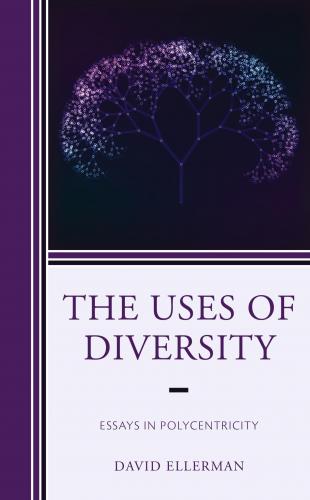The Uses of Diversity. David Ellerman
The Uses of Diversity
Polycentricity: Studies in Institutional Diversity and Voluntary Governance
Series Editors: Lenore T. Ealy and Paul Dragos Aligica
This interdisciplinary series explores the varieties of social institutions, processes, and patterns of governance that emerge through individuals’ coordination, cooperation, and competition in governance systems based on freedom of choice, freedom of exchange, and freedom of association. Under conditions of relative freedom of association, human diversity leads to institutional diversity and polycentric structures. In contrast to monocentric, unitary, and hierarchical command and control systems, polycentric social systems comprise many decision centers interacting freely under an overarching set of common rules. First introduced by Michael Polanyi as a descriptive and normative feature of free societies and further elaborated by Nobel Prize in Economics recipient Elinor Ostrom and public choice political economy co-founder Vincent Ostrom, the notion of polycentricity has proven itself able to offer a powerful analytical framework for expanding our understanding of the operation of governance regimes, constitutional federalism, law, public administration, private ordering, civics and citizenship, subsidiarity, nonprofit organization, cultural pluralism, civil society and entrepreneurship. Studies in this series will refine the conceptual framework of polycentricity and its governance theory implications, while expanding their application in the study of what Alexis de Tocqueville called the art and science of association. These studies should be of interest to scholars, policymakers, executives, social entrepreneurs, and citizens working to devise ways of living together harmoniously in civil societies.
Cryptodemocracy: Blockchain Technology and Democratic Governance by Darcy W.E. Allen, Chris Berg, and Aaron Matthew Lane
The Uses of Diversity: Essays in Polycentricity by David Ellerman
The Uses of Diversity
Essays in Polycentricity
David Ellerman
LEXINGTON BOOKS
Lanham • Boulder • New York • London
Published by Lexington Books
An imprint of The Rowman & Littlefield Publishing Group, Inc.
4501 Forbes Boulevard, Suite 200, Lanham, Maryland 20706
6 Tinworth Street, London SE11 5AL, United Kingdom
Copyright © 2020 by The Rowman & Littlefield Publishing Group, Inc.
“The Two Institutional Logics: Exit-Oriented versus Commitment-Oriented Institutional Designs” by David Ellerman, International Economic Journal, copyright © Korea International Economic Association reprinted by permission of Taylor & Francis Ltd, http://www.tandfonline.com on behalf of Korea International Economic Association.
Chapter 1 previously published as “How Do We Grow?: Jane Jacobs on Diversification and Specialization” by David Ellerman, Challenge, reprinted by permission of Taylor & Francis Ltd, https://www.tandfonline.com/
Chapter 8 previously published as “On the Russian Privatization Debate” by David Ellerman, Challenge, reprinted by permission of Taylor & Francis Ltd, https://tandfonline.com/
Chapter 7 previously published as “Investment Climate and Globalization: What’s Wrong with the Western Advice?” Ellerman, David. 2009. In Globalization and Transnational Capitalism: Crises, Opportunities, and Alternatives, edited by Li Xing, Li Jizhen, and Gorm Winther, 109–30. Aalborg: Aalborg University Press. Reprinted with permission by Aalborg UPress.
Reprinted by permission from Springer Nature Customer Service Centre GmbH: Springer Nature Journal of Bioeconomics. “Parallel experimentation: a basic scheme for dynamic Efficiency” by David Ellerman. © Feb. 2, 2014.
All rights reserved. No part of this book may be reproduced in any form or by any electronic or mechanical means, including information storage and retrieval systems, without written permission from the publisher, except by a reviewer who may quote passages in a review.
British Library Cataloguing in Publication Information Available
Library of Congress Control Number: 2020934290
ISBN 978-1-7936-2372-0 (cloth : alk. paper)
ISBN 978-1-7936-2373-7 (electronic)
Contents
1 Jane Jacobs: The Diva of Diversity
2 Two Institutional Logics: Exit versus Voice and Commitment
4 Contestation and Devil’s Advocacy
6 Knowledge and Autonomy-Compatible Development Assistance
7 Investment Climate for Whom?: Rethinking Globalization
8 Revisiting the Privatization Debates
9 The Logical Fallacy in the Kaldor-Hick Principle and Cost-Benefit Analysis
Figures
| Figure 1.1 | Growth without Diversification |
| Figure 1.2 | Development |
| Figure 2.1 | Parallel and Series Connections of Components |
| Figure 2.2 | Breadth-First Search versus Depth-First Search |
|
|
